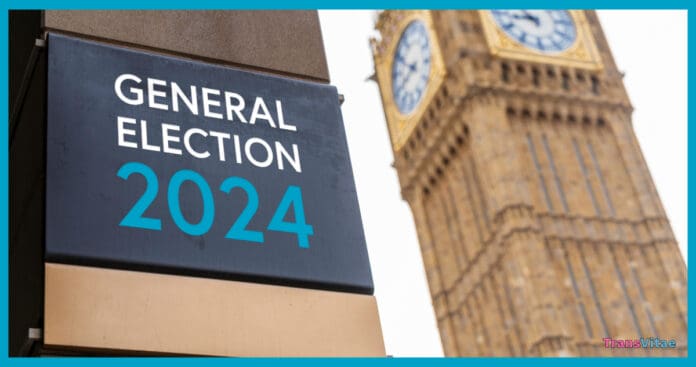In recent statements, Bridget Phillipson, the shadow education secretary, hinted that a Labour government might overturn Conservative guidelines that ban the teaching of more than two genders in schools. This development has ignited a fierce debate about the future of gender education in the UK, particularly among transgender individuals and their allies.
Earlier this year, the Conservative government introduced guidelines that restrict schools from teaching gender ideology. This includes the concept that people can be born the wrong sex and can change their identity to non-binary or other gender categories. The guidance also mandates that teachers emphasize the existence of two biological sexes.
Education Secretary Gillian Keegan defended the guidelines, arguing that they protect children from what she describes as “contested gender ideology.” According to Keegan, the guidance ensures that children are not exposed to “divisive and factually incorrect” gender concepts without parental knowledge.
Labour’s Position and Phillipson’s Comments
Bridget Phillipson’s recent comments suggest that Labour might review and potentially reverse these guidelines. When pressed on whether Labour would maintain or ditch the ban, Phillipson emphasized the importance of recognizing the existence of trans people in society. She acknowledged that while some aspects of the draft guidance were beneficial, others were overly partisan and unhelpful for schools.
“There are trans people within society and their existence should be recognized,” Phillipson said. She criticized the current approach for turning children’s lives into a political football, calling for a more responsible and empathetic handling of the issue.
Gillian Keegan responded to Phillipson’s comments by accusing Labour of “playing politics with the lives of our children.” She warned that Labour’s potential reversal of the guidance could lead to the promotion of gender ideology in classrooms and keep parents in the dark about what their children are learning.
A Conservative source echoed these concerns, stating, “Under Labour, children will be taught to question their gender and parents will be kept in the dark. This is really worrying for parents and a nightmare for teachers grappling with a sensitive issue.”
The Transgender Community’s Perspective
For many in the transgender community, the Labour Party’s potential shift offers hope for a more inclusive and supportive educational environment. The recognition of non-binary and other gender identities in school curricula can be crucial for young transgender individuals who are navigating their identities.
Transgender rights activists argue that inclusive education is essential for fostering understanding and acceptance. They emphasize that acknowledging the existence of various gender identities can help reduce stigma and discrimination against transgender and non-binary students.
JK Rowling’s Criticism and Labour’s Response
The debate over Labour’s stance on transgender issues has also drawn criticism from high-profile figures like JK Rowling. The author has been vocal about her concerns regarding the balance between women’s rights and transgender rights. She has expressed discomfort with Labour’s approach, stating that she might struggle to support the party.
Phillipson responded to Rowling’s comments by expressing respect for the author’s advocacy work but emphasizing Labour’s commitment to protecting both women’s rights and the rights of transgender individuals. “I’m genuinely sorry to hear that because I have a real degree of respect for JK Rowling and all the work that she’s done. But let’s look at the work that Labour has done before in this area and what we’re committed to doing now,” Phillipson said.
Phillipson’s comments highlight Labour’s intention to balance the needs of all students, including those questioning their gender identity. She stressed the importance of listening to the responses from the ongoing consultation on the Conservative guidelines before making any decisions.
“School leaders across the country want clarity on how to manage what is a sensitive and difficult area for them,” Phillipson noted. “We absolutely do need to see guidance and a Labour government, if we win the trust of the British people, will make sure that happens.”
The Broader Impact on Transgender Individuals
For transgender individuals and their families, the outcome of this debate will significantly impact their experiences in the education system. Inclusive and affirming educational practices can play a critical role in the mental health and well-being of transgender youth.
Studies have shown that transgender students who receive support and affirmation in school are less likely to experience depression, anxiety, and suicidal ideation. Therefore, the policies that schools adopt regarding gender identity can have profound implications for the lives of transgender students.
As the political debate continues, the transgender community and its allies will be watching closely to see how Labour’s position evolves. The party’s commitment to reviewing the Conservative guidelines and considering the well-being of all students suggests a potential shift towards a more inclusive approach.
Ultimately, the discussion around gender identity in education reflects broader societal debates about the recognition and acceptance of diverse identities. For many transgender individuals, the hope is that future policies will prioritize understanding, empathy, and support, creating a safer and more inclusive environment for all students.
As the general election approaches, the positions taken by political parties on this issue will likely play a crucial role in shaping the educational landscape for transgender students in the UK. Transvitae.com will continue to provide updates and insights on this evolving topic, ensuring that our readers remain informed and supported.


